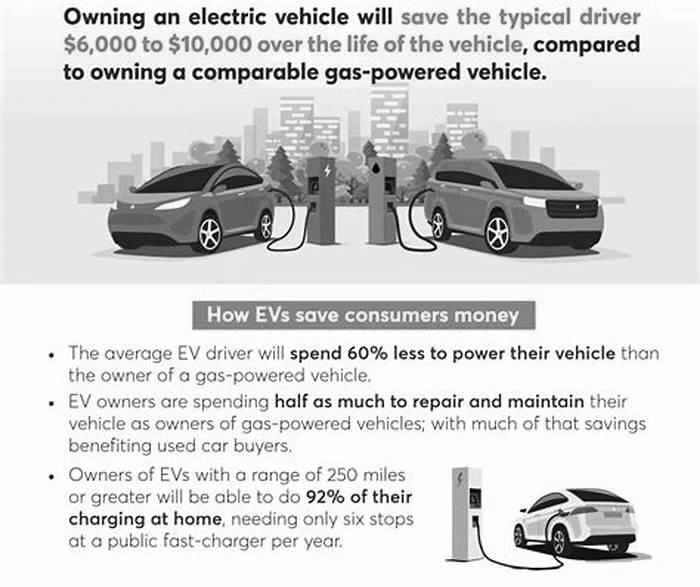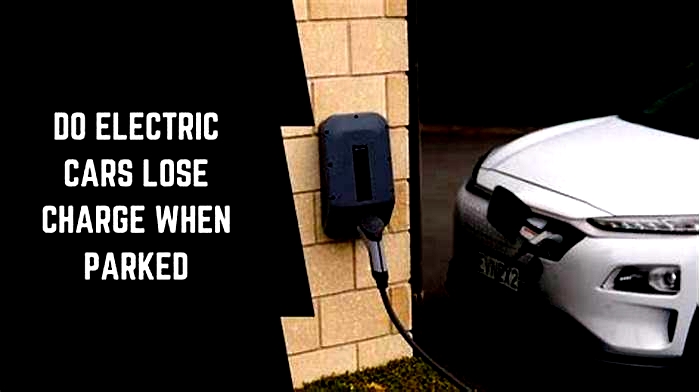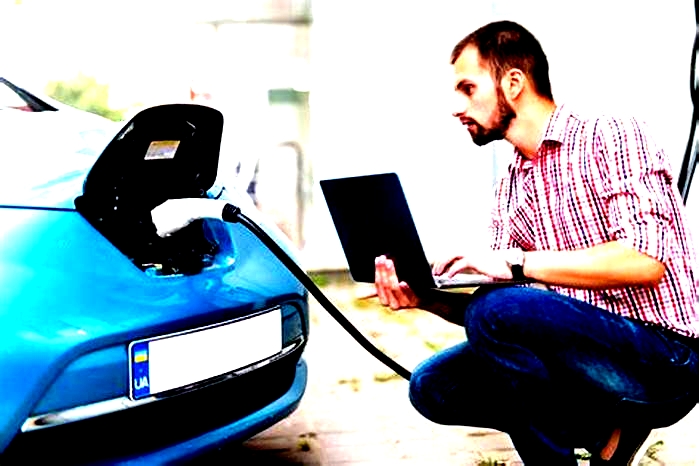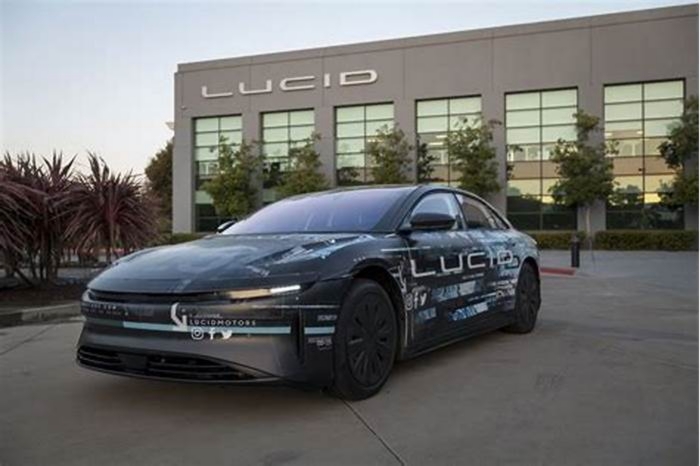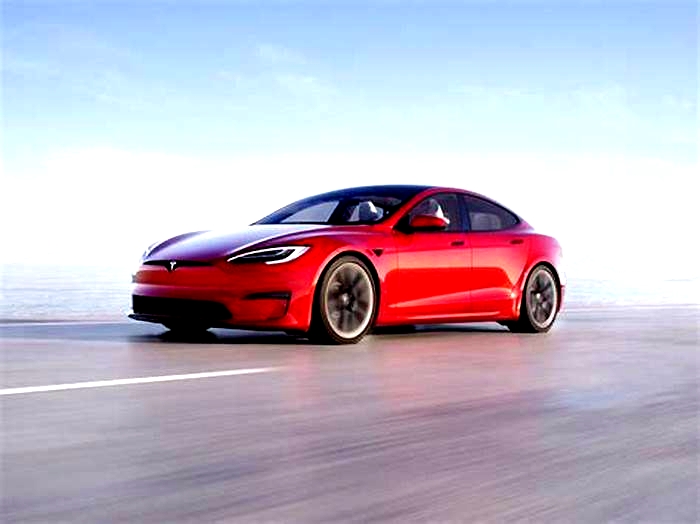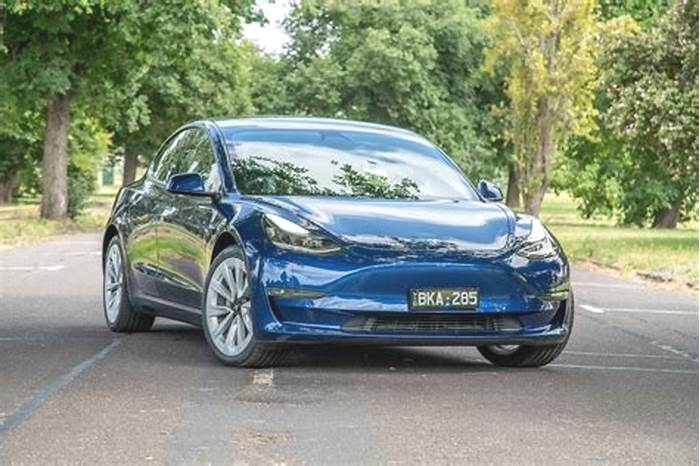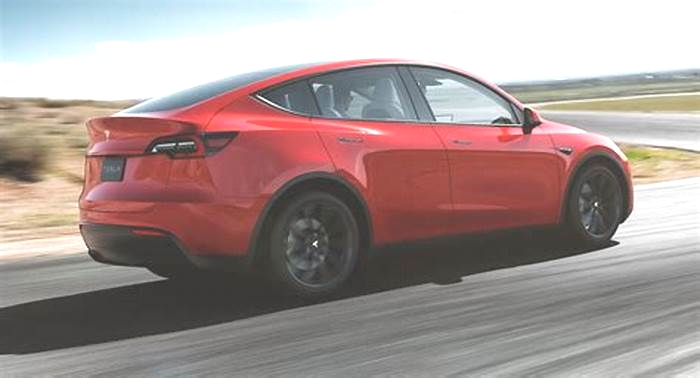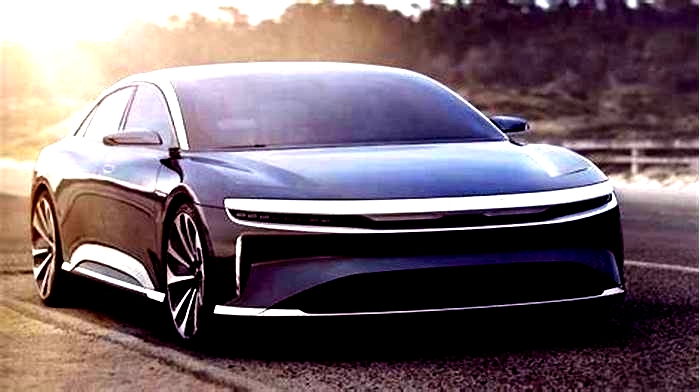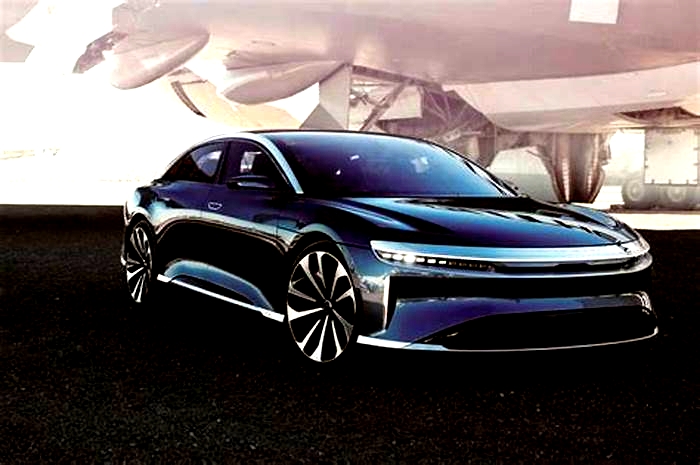Do electric cars lose range over time
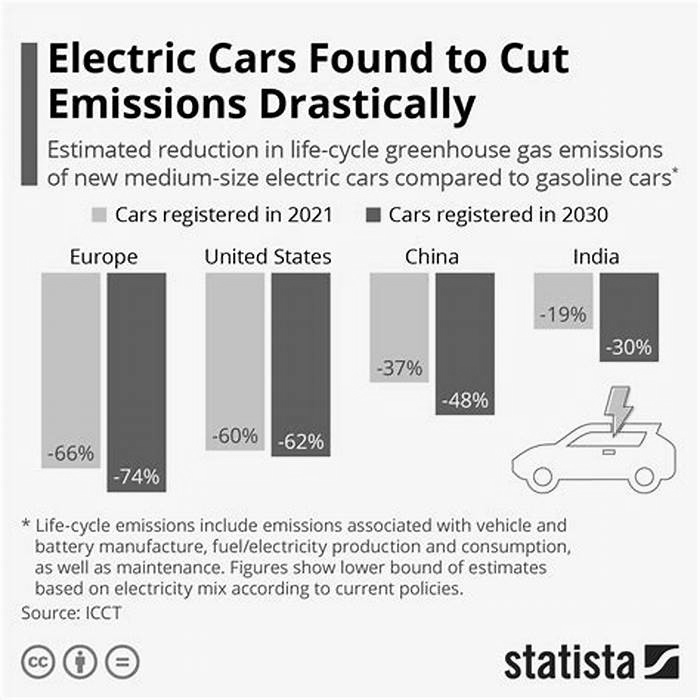
Do Electric Cars Lose Range Over Time? Here is the Data
Every year an electric car loses range. Data from real-world electric vehicle driving shows batteries are faring better than experts thought in regard to maintaining battery range.
Electric cars lose 2.3% of range per year on average. Over time, a 150-mile range electric car will lose 17-miles of range in five years. At this rate, batteries will outlast the usable life of the vehicle. The loss of range depends on the make, model, and year of the electric vehicle.
As more electric vehicles hit the road, are driven under varying conditions, and data is collected all sources point to range loss over time is not something one should worry about when purchasing an electric car.
But lets look at the data to see what range can expect if you purchase an electric car new or used.
Range Over Time of an Electric Car
The best data on electric car battery range over time comes from a fleet-telematics company, Geotab. Fleet-telematics are systems that collect data on vehicle location, driver behavior, engine diagnostics, and vehicle activity. They then do cool stuff with it, like help us feel better about an electric cars long term battery life and performance.
Geotab collected real-world data from 6,300 electric cars, representing 1.8 million days of data. The study was on 21 distinct vehicle models, representing 64 makes, models, and years.
What did they find about the electric cars losing range over time?
If you purchase an older electric car, the battery has deteriorated. But the decline in the range is minor and wont impact your day-to-day commute needs.
On average, one can expect a lithium-ion battery to lose 2.3% of its ability to hold a charge each year. Consider 2.3% your benchmark but the battery degradation does depend on the make, model, and year of the vehicle.
If you are considering purchasing an electric car and are concerned with loss of range over time then take a look at Geotabs EV Battery Degradation Tool.
The tool is an excellent way to compare the battery performance of different electric vehicles. You are right to explore this issue as the capacity loss will impact range, cost of ownership, and resale value.
For example, using the Battery Degradation Tool one can see a 2017 Nissan Leaf battery is expected to be 94.7% of the original capacity or the batterys state of health (SOH). While a 2017 BMW i3 is 84.2% SOH. That is a considerable difference if you are planning on driving a lot.
Electric cars are so new that there is little hard data, mostly anecdotal about long term battery health. But the evidence is mounting that long term performance of batteries should not be a concern for buyers and owners.
Tesloop, a Tesla rental service company in California has driven its seven Model 3s, Xs, and Ss over 300,000 miles each, 1,700 miles per month. They have no plans to remove them from service. A Model X with 330,000 miles experienced a range drop of 23%, from 260 miles to 200 miles.
419 Tesla owners worked together to pool their cars battery degradation over time. The results were Teslas batteries retained 95.6% SOH (percent of original capacity) after 31,068 miles (50,000 km). The rate of decline was not linear but slowed over time. It reached 94% SOH at 62,137 miles (100,000 km).
A 2017 Teslanomics survey of Tesla owners found battery degradation stabilized at around 91% SOH.
Why Electric Car Batteries Lose Range Over Time
As the Tesla data shows, a batterys state of health is not a linear decrease. The Geotab data is linear as a simplification across the large sample size. As a general rule, batteries are expected to decline non-linearly. An initial drop is followed by a continued decline at a moderate pace, leading to a sharp drop-off at the end of life.
EVs on the road are not old enough to have experienced this sharp drop-off.
In fact, Tesla says it is working on battery technology that would enable an electric car battery to be driven one million miles before the drop-off.
Consumer Reports estimates the average electric cars battery-pack lifespan to be 200,000 miles before the range is restricted. 200,000-mile lifespan is 17-years if driven 12,000 miles per year.
State of health (SOH) measures a batterys ability to store energy over time. A battery starts at 100% SOH and degrades permanently over time. A 100 kWh battery starts at 100% SOH but after two years has 95% SOH would act like a 95 kWh battery.
SOH is not the same as battery range but SOH does reduce the distance a car can travel on those kWh. An EVs range is also impacted by climate, topography, cargo load, and driving habits.
Lithium-ion battery health is impacted by the following factors in order of largest to least impact:
- Time
- High temperatures
- Operating at high and low state of charge
- High electric current
- Usage (energy cycles)
Temperature Impact on Range Loss
Lithium-ion batteries do not fare well in extreme heat. EVs operating in hot climates can expect a larger decrease in range over time. But, many electric cars are equipped with cooling systems for the battery-pack. Here is where you can see a difference in car brand performance on long-term range degradation.
Teslas liquid-cooled batteries have a higher range over time compared to Nissan Leafs passive-air cooled system (Geotab data). Managing the batteries temperature is a differentiator for carmakers going forward to reduce range loss with time.
Operating Range
Draining most or all of a batterys charge can cut into the long term capacity. Operating at near-zero charge on a regular basis has shown to decrease the state of health of the battery.
This was a bigger problem for older cars that had a smaller range. Now with Nissan Leafs having a 150-mile range and Teslas with over 300-mile ranges, users only use a fraction of the batterys capacity before they charge for the night.
High Electric Current
Those Level 3 DC Fast Charging stations are great. They can bring an EVs batteries up to 80% capacity in 30-minutes. But they can take a toll on the health of the battery.
The high electric current makes the battery-pack hot, leading to battery degradation as hot temperature does in the example above.
The impact of excessively using Level 3 DC Fast Charging stations is limited. A study done on two identical 2012 Nissan Leafs by Idaho National Laboratory found using Level 3 chargers isnt a pronounced issue.
For 50,000 miles they charged one leaf exclusively on a Level 2 240-volt home charger and the other Leaf on public Level 3 chargers. The Level 3 charged car had a 4% decrease in capacity compared to the Level 2 charged car.
Research has shown all these play a part in battery health but long-term, real-world performance date has only started to be collected. As EVs on the road reach a decade old, more data on range loss over time will paint a clearer picture of battery performance and improvements needed to maintain the batterys health and range.
How to Reduce Range Loss Over Time
The data and recommendations from Geotab recommend maintaining an electric cars battery state of health by the following guidance.
- reducing exposure to extreme temperatures and heat
- keeping EVs charged between 20% and 80%
- minimize DC fast charging
Items two and three are under the control of the owner while it is harder to control the climate. Following this guidance will improve the long-term range and health of the battery but perhaps only a few percentage points.
The EVs studied all show a decline in performance with age but it is strongly noted these batteries will outlive the cars components. While apprehension on battery life and range is a major factor for people purchasing EVs, their performance has been outstanding and continues to improve as battery technology improves.
Geotabs data, informal Tesla super-fan data, and government research are helping to overcome electric vehicle misconceptions. Misconceptions like electric cars lose a substantial amount of range over time.
Cox Automotive survey of people considering to purchase an EV, 50% viewed the average battery life at 100,000 miles or more, and 46% thought average battery life was 65,000 miles or less.
Real-world data is finding the opposite to be true.
Electric cars lose range over time but at a rate that is unlikely to impact an owners day-to-day needs. Carmakers expect the batteries to outlast the vehicles lifespan.
When shopping for a used electric car, it is wise to note the actual range of the battery. If you are purchasing a 2012 Nissan Leaf then a 10% decrease in battery capacity is significant on a battery that only had a 70-mile range to start with.
Every year an electric car loses range. Data from real-world electric vehicle driving shows batteries are faring better than experts thought in regard to maintaining battery range.
Do Electric Cars Lose Range Over Time? (Explained)
Car owners wonder whether electric cars are more reliable than conventionally powered vehicles.
This article covers all the basic aspects of the EV cars battery life, charging, and cost.
We also made a list ofaffordable electric cars with good rangethat you might want to check first. A good range is the most important factor when choosing a good electric car.
Heres How Electric Cars Lose Range Over Time:
Electric vehicles lose around 1-2 percent of their range every year. The lithium-ion batteries installed in electric vehicles are durable enough to outlive the vehicle itself. These lithium batteries are present in almost every electrical device with a battery, such as smartphones and laptops.

What Type of Battery is used in EV cars?
The EV cars use a Lithium-ion (Li-ion) battery.
It is a rechargeable battery used not only in electric cars but in various devices. The basic properties of a lithium-ion battery are that the metal is of the lightest weight and has additional energy density than other standard rechargeable batteries.
These two significant features help the battery makers conserve a little space, resulting in a smaller battery pack.
Although these lithium-ion batteries are durable, overcharging the battery can significantly impact the batterys range in the long run.
For instance, in the Tesla Model S, experts observed that the battery degradation is 10% for every 150,000. We have more here on how quickly Teslas lose range.
According to car brands, a battery replacement isnt required until the degradation reaches up to 60-70%. A new generation of these lithium-ion batteries can cover thousands of miles without degradation.
Even though electric cars lose some range over time,EVs still offer more range than gas-driven carson average.
How soon do car batteries start to offer less range?
We have a dedicated article about exactlyhow fast electric cars starts to lose range.
As EV vehicles rely on the battery, most people considering switching to EVs are concerned about battery life.
Just like the battery of a smartphone or laptop, you get the maximum life of the battery when the device is new.
Over time, the battery loses its ability to hold a charge and eventually needs a replacement. Just as the batteries of these electronic devices deteriorate and become less efficient over time, you can expect the same from an EV car.
As you can see, smallelectric cars often have a very high range!
It is important to know that almost all rechargeable batteries lose capacity over time, even if theyre taken care of well.
Most EVs are built to ensure that their battery life and capacity are generous enough for a decade.
The efficiency of a battery, which can be called the range of the vehicle in simple words, will inevitably degrade over time.
Recent statisticsreveal that many electric car batteries last for around 10 to 20 years.
The decrease in the range is relatively minor, ranging from 1.9 to 2.2 percent per year.
This implies that if you buy an electric car now with a range of 150 miles, youll only have lost roughly 17 miles of usable range in the next five years.
According toRecurrent, a company that analyzes more than 6,800 linked vehicles in the United States and provides used EV car data, each electric vehicle decreases range differently, despite being from the same manufacturer or year.
Do electric cars have backup batteries?
We addressed this in a separate article.
Read here about whethersome electric cars have backup batteriesto help you get going when you run out of power.
When should you expect to replace the battery?
Many manufacturers give a 5 to 8-year warranty on the EV battery. Still, new electric vehicle batteries have efficient batteries for up to 10-20 years if the vehicle is getting proper maintenance and isnt suffering weather issues.
Knowing how to identify weak battery signs can help preserve the batterys original lifespan.
For instance, a vehicles battery, if drained to complete zero, will degrade faster than a vehicles battery that undergoes shallow discharges.
Experts say that electric vehicle owners should not charge the battery up to 100%, so let it charge to 80% and then discharge it.
The recharge should happen before the battery reaches zero because it will affect the batterys performance otherwise.
EV batteries do not degrade easily if kept under optimum conditions. A battery can spend an average of 8 years running before it needs to be repaired or replaced.
Keeping the battery empty for too long will affect its performance and the entire EVs efficiency.
Elon Musk, the owner of the car brand Tesla, reported that the batteries under development at Tesla would be able to give the upcoming EVs a lifespan no shorter than 15 years with maximum range and performance.
We have another article about how long a Tesla will last.
Do electric car batteries lose range linearly or suddenly?
It is extremely unusual for an EV car battery to fail unexpectedly.
The battery of an electric vehicle degrades gradually and has numerous factors that affect electric vehicle battery life. Some of the main elements are discussed below:
Time
This is one of the primary constraints that directly impact the life and range of the EV cars rechargeable battery. Over time, the EV car battery loses the power of its ions and becomes weak.
Mileage
Another imperative aspect of the degradation of EV car battery life is the frequency of charging. The more charge cycles a lithium-ion battery does, the greater the degradation of the cell.
Fast charging
This constraint of fast charging does not always lead to rapid battery deterioration, although the higher temperature stress might harm the battery cells internal parts.
The degradation of the battery allows fewer ions to travel in between, resulting in reduced battery life.
A very important fact: You can typicallypower your electric car at ANY charging station.
Temperatures
Hot temperatures are suitable for EV car batteries, but extended exposure to heat can harm the battery life.
Additionally, extremely cold or hot environmental conditions might decelerate the EVs charge rate and reduce its total range.
Read also:15 affordable electric cars with HIGH range.
How many years do electric car batteries typically last?
Some major players in the market are manufacturing EV car batteries. It doesnt matter if you buy a cheap EV or a high-end electric vehicle; the battery provider might probably be the same.
The popular EV car battery manufacturers are Nissan and Tesla, considered the most reliable EV car battery manufacturers.
They have been providing a satisfying battery life in their electric vehicles.
It has been claimed that an 8-year-oldNissan Leaf batteryhas only degraded by 20%.

The table below lists all the popular electric car brands with their battery warranty, which eventually explains their battery life:
| Brand | EV car battery warranty |
| Tesla (Model S/X) | 8 years/150,000 miles |
| Hyundai | 8 years/125,000 miles |
| Tesla (Model 3/Y) | 8 years/120,000 miles |
| Audi | 8 years/100,000 miles |
| BMW | 8 years/100,000 miles |
| Citroen | 8 years/100,000 miles |
| Fiat | 8 years/100,000 miles |
| Honda | 8 years/100,000 miles |
| Jaguar | 8 years/100,000 miles |
| Mercedes-Benz | 8 years/100,000 miles |
| Mini | 8 years/100,000 miles |
| Nissan | 8 years/100,000 miles |
| Peugeot | 8 years/100,000 miles |
| Renault | 8 years/100,000 miles |
| Skoda | 8 years/100,000 miles |
| Tesla (Model 3/Y) | 8 years/100,000 miles |
| Vauxhall | 8 years/100,000 miles |
| MG | 7 years/80,000 miles |
| Kia | 7 years/100,000 miles |
The other EV car manufacturers like Renault, Volvo, Chevrolet, and Ford are importing their EV car batteries from the not-so-popular Korean supplier LG Chem.
Another Chinese brand, BYD, also provides rechargeable lithium-ion batteries for the auto manufacturing industry.
It is also Chinas largest electric car maker, which has been exporting more battery-powered cars since the year 2019.
The auto industry offers a great battery warranty for its EV car customers; Tesla andNissanhave been the initial sellers of EV cars, with the Tesla Roadster in 2008 and the Nissan Leaf in 2010, respectively.
How much does it cost to replace the batteries on electric cars?
One of EV car buyers major concerns is the battery replacement cost.
It is one of the rare situations in which a battery may be required to be replaced outside of warranty.
Currently, the typical replacement cost of an electric car battery is approximately $6,000, making it the most costly part of the electric car.
However, if a battery replacement is required for an EV car and the vehicle is out of warranty, it is recommended that you get it done from an authentic dealership that deals in the original Lithium-ion battery approved by the manufacturer.
Do batteries on new electric cars last longer than 5 years ago?
The batteries on the new EV should last well past the 5-year mark.
The degradation of an electric vehicle battery is affected by:
- Atmospheric temperatures
- Cycles
- Time
- Weather temperatures
- Other factors
For instance, the temperature of the area where the vehicle is parked and the electric vehicles operating temperatures impact its batterys lifespan.
As the battery goes through regular charge cycles, its bound to lose its maximum potential.
Irregular charging also affects battery degradation. Although smartphones and laptops run on lithium-ion batteries, the batteries installed in electric vehicles also work via complex management systems, also known as BMS.
These management systems regulate the charge and discharge cycles of the battery. If the electric vehicles battery doesnt undergo temperature degradation, as mentioned above.
It will most likely experience calendar degradation the process that comprises all battery aging processes that lead to degradation.
Calendar aging is important in electric vehicles because operating intervals are significantly shorter than idle ones.
There are also other issues andpossible dangers with electric cars. Lithium-ion batteries get weak over time, even if not in use.
It is the same as cellphones or laptop devices losing efficiency over time as they remain even when out of use.
We have plenty of data available to figure out the 5 to 10-year-old battery life. Examining how the oldest EV cars on the road operate now gives us the greatest indicator of lithium-ion battery life.
The Nissan Leaf debuted in 2011, so we have years of data as many of those batteries are still in use.

Nissan has claimed thatdatafrom 0.4 million Nissan Leaf cars indicates that even the oldest batteries should last 22 years. The Tesla Model S is another long-running electric vehicle. It debuted in 2012, so battery researchers have a ton of information.
Tesla statisticspredicted that the EV car battery would degrade quickly in the initial phase of 25,000 miles. However, there was a significantly slower decay until 175,000 miles after that.
The current statistics have already suggested that electric car batteries will last around 10 to 20 years because the technology has been upgraded, and the engineering of the lithium-ion battery has made it more efficient, reliable, and powerful in the last decade.
We also have an article about whether electric cars lose battery while parked.
Can electric car batteries be upgraded?
Battery upgrades allow electric vehicles to perform better without sacrificing any range.
Manufacturers around the world are offering battery replacements on the market.
Another problem is that battery sizes and areas in an electric vehicle might differ from others, so its very difficult to perform a battery upgrade.
Due to their design,electrics built in a vehicleonly work for particular power output. That is why many battery replacements cease to work properly or immediately fail.
If a vehicle with the capacity for varying battery sizes is bought, it might be easier to upgrade the battery.
Many car brands, such as Volkswagen, are manufacturing electric vehicles with three different battery sizes that give the consumer the option of a battery upgrade. Smaller batteries offer lower ranges than bigger batteries. Upgrading to a bigger battery might add more range to the electric vehicle.
Tesla allows its consumers to upgrade the vehicles battery online. That is because Tesla vehicle batteries can already upgrade.
The online upgrade probability will soon become mainstream in the car industry, but its evident that the battery which comes with the vehicle works best for the vehicle itself.
Was this article helpful?
 Did you find wrong information or was something missing?
Did you find wrong information or was something missing?We would love to hear your thoughts! (PS: We read ALL feedback)

